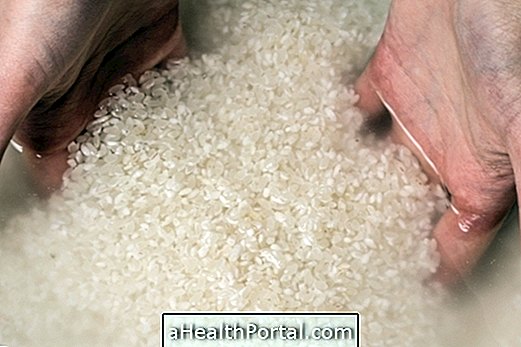Bowel transplantation is a type of surgery in which the doctor replaces a person's small intestine with a healthy gut from a donor. Generally, this type of transplant is necessary when there is a serious problem in the intestine, which prevents the correct absorption of nutrients or when the intestine no longer presents any type of movement, putting at risk the life of the person.
This transplant is more common in children due to congenital malformations but can also be done in adults due to cases of Crohn's disease or cancer, for example, being only contraindicated after age 60 due to the high risk of surgery.

When it's necessary
Intestinal transplantation is done when there is a problem that is preventing the proper functioning of the small intestine and therefore, the nutrients are not being well absorbed.
Generally, in these cases, it is possible for the person to be fed through parenteral nutrition, which consists of providing the necessary nutrients for life through the vein. However, this may not be a solution for all people, since complications can arise such as:
- Insufficiency of the liver caused by parenteral nutrition;
- Recurrent catheter infections used for parenteral nutrition;
- Injuries to the veins used to insert the catheter.
In these cases, the only way to maintain proper nutrition is by transplanting a healthy small intestine so that it can replace the function of the patient.
How is done
Intestinal transplantation is a very complex surgery that can take anywhere from 8 to 10 hours and needs to be done in a hospital with general anesthesia. During surgery, the doctor removes the affected bowel and then puts the healthy bowel in place.
Finally, the blood vessels are connected to the new intestine, and then the intestine is attached to the stomach. To end the surgery, the part of the small intestine that should be attached to the large intestine is attached directly to the skin of the belly to create an ileostomy, whereby the stool will exit into a sachet stuck to the skin, making it easier for the physicians evaluate the evolution of the transplant, observing the characteristics of the stool.
How is the transplant recovery?
Recovery after bowel transplantation is usually started in the ICU to allow for a constant assessment of how the new bowel is healing and whether there is a risk of rejection. During this time, it is common for medical staff to perform various tests, such as blood tests and endoscopies, to ensure that healing is occurring properly.
If there is rejection of the new organ, the doctor may prescribe a higher dose of immunosuppressants, which are medicines that decrease the activity of the immune system to prevent the organ being destroyed. However, if you are healing normally, your doctor will ask you to transfer to a normal ward, where analgesics and immunosuppressive medicines will continue to be given into the vein until healing is almost complete.
Usually, after about 6 weeks after surgery, it is possible to return home, but for a few weeks it is necessary to go to the hospital frequently for tests and continue to evaluate the functioning of the new intestine. At home, it will be necessary to always keep the intake of immunosuppressive medicines for the rest of your life.
Possible causes
Some causes that may cause bowel malfunction and consequently the performance of a bowel transplant include:
- Short bowel syndrome;
- Bowel cancer;
- Crohn's disease;
- Gardner's Syndrome;
- Serious congenital malformations;
- Ischemia of the intestine.
However, not all people with these causes can undergo surgery, so it is necessary to make an evaluation before the surgery in which the doctor requests various exams such as x-rays, CT scans or blood tests. Some of the contraindications include cancer that has spread to other parts of the body, other serious health conditions, and age over 60, for example.









-o-que--sintomas-transmisso-e-tratamento.jpg)












